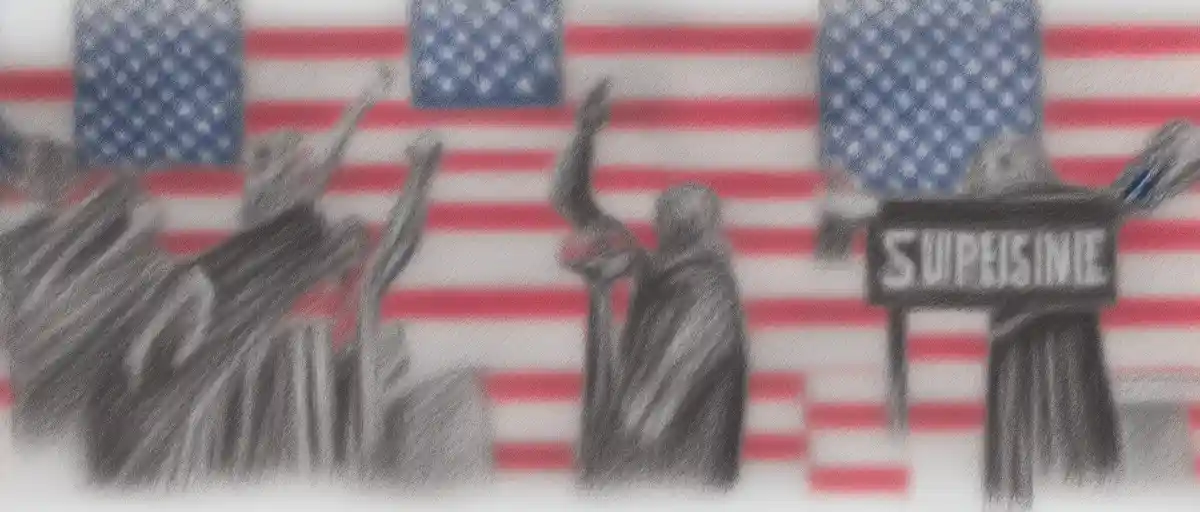You Might Find This Intriguing As Well:
Supreme Court Divided: Alabama’s Voting Rights Law Upheld with Controversial Ruling!
The recent Supreme Court ruling on Alabama’s voting rights case has ignited a fierce debate on the necessity and impact of witness or notarization requirements for absentee ballots. The decision, divided among the justices, reflects the deep divide on this issue and its potential consequences for voters across the country.
On one side, Justices Kavanaugh, Roberts, Alito, Gorsuch, and Thomas argue that Alabama’s law is necessary to combat voter fraud and strengthen the integrity of elections. They believe that the provision for witnesses or notarization serves as a reasonable safeguard against potential manipulation of the voting process. By upholding the constitutionality of this requirement, they aim to ensure the confidence and trust of the American people in the electoral system.
However, Justices Breyer, Sotomayor, and Kagan offer a contrasting viewpoint, asserting that the witness or notarization mandate places an unnecessary burden on voters, particularly those already facing marginalized circumstances. They argue that these requirements, although well-intentioned, disproportionately affect communities with limited access to witnesses or notaries, potentially leading to voter disenfranchisement. They express concerns that such stringent regulations could discourage eligible voters from participating in the democratic process.
The clash between these positions lays bare the complexity of voting rights and access in the United States. Striking a balance between ensuring the integrity of elections and facilitating voter participation remains a formidable challenge. As the nation grapples with ongoing debates on voting regulations, this ruling underscores the far-reaching consequences that legal decisions can have on the future of democracy itself.
The Supreme Court’s ruling in the Alabama voting rights case represents a landmark decision that rekindles the ongoing national debate over voting access. While the justices in the majority argue that witness or notarization requirements protect the integrity of elections, dissenting justices emphasize the potential disenfranchisement of marginalized communities. Balancing the need to maintain confidence in the election process and ensuring equal access to the ballot box is crucial in shaping the future of American democracy.
Here's A Video We Thought You Might Also Like:
Author Profile

- With a background in international affairs, I bring a global perspective to my reporting, including in-depth coverage of political events and their impact on societies around the world.
Latest entries
 Breaking News2023.12.21Startling Face-off Between Mexican President and Texas Governor Over Immigration Law
Breaking News2023.12.21Startling Face-off Between Mexican President and Texas Governor Over Immigration Law Breaking News2023.12.19Hair-raising Crisis Uncovered Chaotic Voters Overwhelm Southern Border!
Breaking News2023.12.19Hair-raising Crisis Uncovered Chaotic Voters Overwhelm Southern Border! Breaking News2023.12.13Startlingly Hunter Biden Defies Subpoena in Raging Political Showdown!
Breaking News2023.12.13Startlingly Hunter Biden Defies Subpoena in Raging Political Showdown! Breaking News2023.12.13Explosive Showdown Democrats and Republicans Lock Horns Over Ukraine Aid – Who’s to Blame
Breaking News2023.12.13Explosive Showdown Democrats and Republicans Lock Horns Over Ukraine Aid – Who’s to Blame






